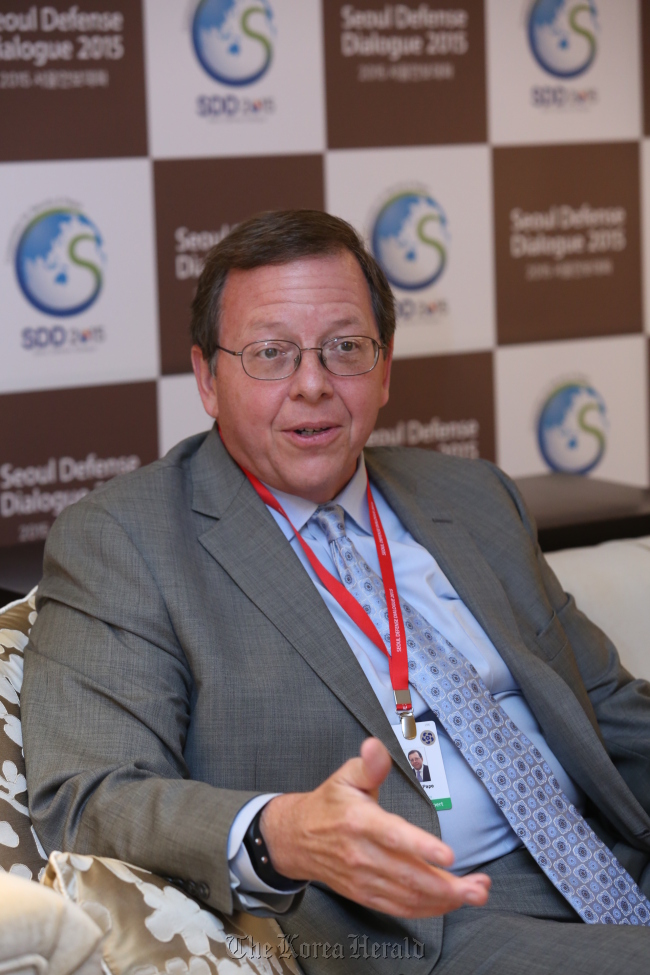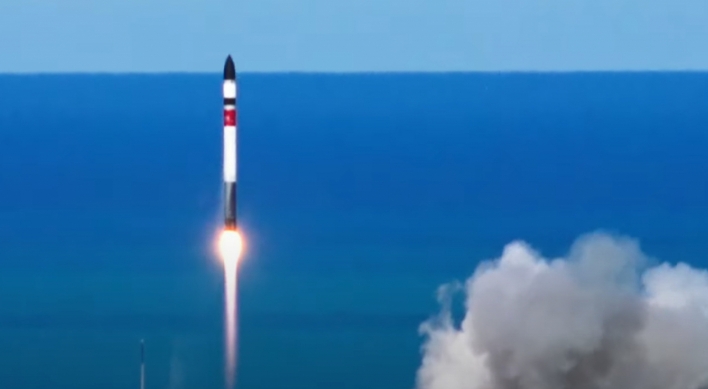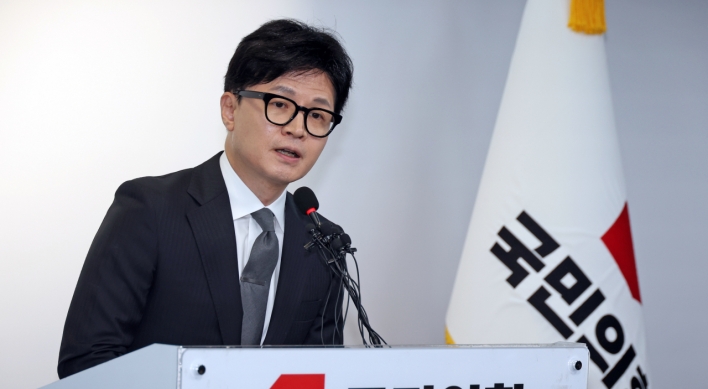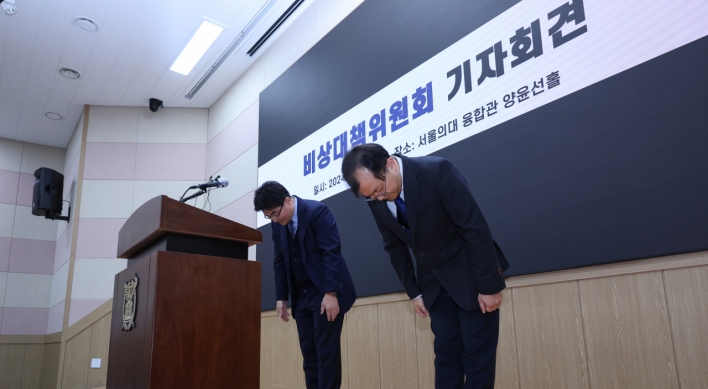‘South Korea, U.S., China need plan for nukes in post-Kim North Korea’
By Shin Hyon-heePublished : Sept. 10, 2015 - 18:23
South Korea, the U.S. and China should initiate a mechanism to head off a possible handover of North Korean nuclear weapons to terrorist groups and boost substantive top-level talks to better prepare for the future of the peninsula, a U.S. scholar said Thursday.
Robert Pape, a professor at the University of Chicago who leads its project on security and terrorism, singled out “loose nukes” as the “first and foremost” crisis that may break out following a sudden collapse of the Kim Jong-un regime, referring to poorly guarded atomic devices, fissile materials or related know-how feared to fall into the wrong hands.
The term was initially coined after the fall of the Soviet Union in 1991 prompted concerns that its stockpile of thousands of nuclear warheads and uranium and plutonium may tempt terrorists, criminals or other illicit organizations, though its successor managed to block their sale.
“But if there’s any North Korean regime collapse, then the individuals who might get possession of those nuclear weapons or nuclear material would have far less reason not to sell them, not to use them for very short-term purposes,” Pape said in an interview with The Korea Herald on the sidelines of the Seoul Defense Dialogue hosted by the Defense Ministry here.
“In a general anarchy against all, it’s much more uncertain and much more dangerous what will happen to the nuclear materials and any nuclear weapons that were fashioned.”
Robert Pape, a professor at the University of Chicago who leads its project on security and terrorism, singled out “loose nukes” as the “first and foremost” crisis that may break out following a sudden collapse of the Kim Jong-un regime, referring to poorly guarded atomic devices, fissile materials or related know-how feared to fall into the wrong hands.
The term was initially coined after the fall of the Soviet Union in 1991 prompted concerns that its stockpile of thousands of nuclear warheads and uranium and plutonium may tempt terrorists, criminals or other illicit organizations, though its successor managed to block their sale.
“But if there’s any North Korean regime collapse, then the individuals who might get possession of those nuclear weapons or nuclear material would have far less reason not to sell them, not to use them for very short-term purposes,” Pape said in an interview with The Korea Herald on the sidelines of the Seoul Defense Dialogue hosted by the Defense Ministry here.
“In a general anarchy against all, it’s much more uncertain and much more dangerous what will happen to the nuclear materials and any nuclear weapons that were fashioned.”

Given their respective high stakes and interests in the North Korean arsenal, Seoul, Washington and Beijing can best deal with it through a cooperative framework, the international security expert said, adding that without them tightly working with each other, there may be a “real mess” in the future.
“Whether it is an institution, if you would, or a set of arrangements about how these three countries are really going to act in unstable circumstances, I think that set of arrangements could be highly secret; there’s no reason why they have to become public,” he said.
“But there’s really no sign at the moment that there has been anything like this serious kind of military-to-military talks that would be needed to deal with that.”
A trilateral mechanism, on the summit level if possible, could also help them better manage a potential contingency resulting from Pyongyang’s downfall than their existing ritual of consecutive bilateral talks, Pape said.
Though skyrocketing tensions pushed the two Koreas to the verge of an armed clash last month, a real catastrophe is likely to bring a “true shock of unforeseen consequences” akin to a collapse of the stock market yet in more diverse facets of society, he noted.
“(With) the most complex issues involved, the three most interested parties don’t talk to each other. Not in enough detail, they’re talking in pairs, but not talking altogether,” the professor said.
“In a crisis to take a life of their own, there are much bigger either economic shockwaves, military shockwaves or political shockwaves that even after a couple of weeks we can’t stop. That’s a more worrisome way in which things could really get out of control with the North Korean collapse.”
Acknowledging President Park Geun-hye’s recent trip to Beijing and her increasingly close partnership with her Chinese counterpart Xi Jinping, however, Pape pinned high hopes on his upcoming journey and summit with U.S. President Barack Obama. The meeting will set the stage for their dialogue on the North Korea issue, which he believes is “at the center of future strategic cooperation” between the three nations.
“Given the conflict in the South China Sea and building of islands, I think that if Presidents Obama and Xi could actually have a similar dialogue (to that which) Presidents Xi and Park had on North Korea, this will be a good thing,” he said.
“It could possibly set up three-way discussions down the road, because there is an opportunity of a potential military chaos to be managed in a real way as opposed to just talking about it.”
By Shin Hyon-hee (heeshin@heraldcorp.com)


![[Exclusive] Korean military set to ban iPhones over 'security' concerns](http://res.heraldm.com/phpwas/restmb_idxmake.php?idx=644&simg=/content/image/2024/04/23/20240423050599_0.jpg&u=20240423183955)

![[Graphic News] 77% of young Koreans still financially dependent](http://res.heraldm.com/phpwas/restmb_idxmake.php?idx=644&simg=/content/image/2024/04/22/20240422050762_0.gif&u=)



![[Pressure points] Leggings in public: Fashion statement or social faux pas?](http://res.heraldm.com/phpwas/restmb_idxmake.php?idx=644&simg=/content/image/2024/04/23/20240423050669_0.jpg&u=)









